Why does Saudi Arabia need to improve ties with Iran and Cui Bono?
By Elijah J. Magnier
Following the Iran-Saudi Arabia meeting in China and their agreement to restore diplomatic relations after seven years, the region faces a fresh challenge to reset the shady past and open a new bright chapter.
Peace and de-escalation in the West Asian region are possible if such forward-looking agreements are translated into action, followed by practical steps and measures to rebuild trust and reduce tensions.
China's role as a mediator was a surprise that should not be underestimated. The fact that Saudi Arabia chose Beijing attests to what Iran has been saying for a long – the US is no longer a big player or peacemaker.
As a trusted superpower, China hosted the breakthrough talks that ended months-long efforts by the two sides to open a new chapter in their bilateral ties, meeting multiple times in Iraq and Oman.
However, the shift towards positive Saudi enthusiasm is because confronting Iran is no longer a viable and realistic option, and stability is essential for Saudi Arabia’s future plans.
Moreover, the aftermath of the US-Russian war on Ukrainian soil has significantly accelerated the Saudi-Iranian rapprochement, significantly changing global power dynamics.
For many years, Saudi Arabia sought to destabilize Iran, mainly through its involvement in regional conflicts and support for inimical forces within Iran as well as funding of anti-Iranian media.
It began when Saddam Hussein declared war on Iran after the 1979 Islamic Revolution, which was financed by the West and many oil-rich Persian Gulf states, including Saudi Arabia.
After the war ended, Saudi Arabia focused on changing Iran's ruling system and supported US efforts to bring about “regime change” in Tehran. In 2008, then-Saudi Crown Prince Abdullah urged Americans to "cut off the head of the snake", referring to Iran.
One of the main ways Saudi Arabia has sought to counter Iranian strategic influence in the region has been through its involvement in the conflicts in Lebanon, Iraq, Syria, Yemen and Palestine.
In Lebanon, the crisis began in 2005 after the assassination of former Prime Minister Rafik Hariri. The pro-Saudi Prime Minister, Fouad Siniora, demanded that Hezbollah disarm, but the resistance group refused, arguing that its weapons were necessary for the country’s defense against Israel.
In May 2008, the crisis came to a head when the government moved to shut down Hezbollah's private telecommunications network, which the group used for military purposes to evade Israeli and Western surveillance and pinpoint the location of its units.
The move was seen as a direct challenge to Hezbollah's security and its struggle against the Israeli occupier. Clashes broke out in Beirut's capital between Hezbollah and pro-Saudi forces. A few years after coming to power, Crown Prince Mohamad Bin Salman stopped funding pro-Riyadh Lebanese groups after spending $13 billion in a failed attempt to defeat Hezbollah.
After the US invasion in 2003, Saudi Arabia again provided financial support to insurgent groups, including al-Qaeda in Iraq, the group that later took the shape of Daesh. These groups have been largely responsible for attacks against Iraqi security forces and Shia, Sunni and Kurdish civilians.
In addition, since the start of the Syrian conflict in 2011, Saudi Arabia supported various rebel groups, including Takfiris. These groups have been involved in some of the most intense confrontations in the conflict and have been responsible for numerous atrocities against civilians.
One of the most significant effects of Saudi Arabia's support for Takfiris in Syria was the strengthening of groups such as Jabhat al-Nusra and Daesh. These groups benefited from Saudi support in the form of funding, weapons and training, which allowed them to gain ground and expand their influence in Syria.
In 2015, Saudi Arabia led a coalition of Arab states fighting the Ansarallah resistance movement in Yemen. The conflict fueled one of the worst humanitarian crises in modern history, with thousands of civilian casualties and widespread destruction.
Determined to support the West's goal of destabilizing the Islamic Republic, Riyadh vowed to fight inside Iran. Saudi Arabia supported terrorist groups inside Iran, such as the Mujahedin-e Khalq (MEK), which was listed as a terror entity by several countries and responsible for killing thousands of Iranians.
Last but not least, some Persian Gulf states have been in a frenzy mode to normalize relations with Israel, bringing more instability to the Middle East. And there had also been a talk about the Israeli regime making subtle overtures to Riyadh.
What then convinced the Saudis to reverse their aggressive stance towards Iran and opt for diplomacy and dialogue?
In Lebanon, Hezbollah has emerged as one of the strongest and most organized resistance forces in the Middle East, a deterrent to the Israeli regime, which is clearly afraid to provoke it into another confrontation.
In Iraq, after the Iraqi army was disbanded and on the run after the fall of Mosul, Baghdad called on Iran and its allies to help prevent Daesh from invading the country. The US deliberately reneged on purchasing weapons already paid for to Iraq. Iran’s top anti-terror commander General Qassem Soleimani stopped the terrorist group’s advance towards Kurdistan and the holy shrines, including Baghdad and southern Iraq.
The group lost control and the resistance emerged triumphant, thanks to the heroics of the Iranian resistance commander and his comrades.
In Syria, the attempt to plant a puppet regime was thwarted when the Syrian government sought the support of Iran and its allies. After years of fighting, Saudi Arabia withdrew its support for the terrorists and mercenaries, recognizing the dominance of Syria and its allies over dozens of US-led vassal states.
In Yemen, the Ansarallah resistance movement was able to gain experience in warfare and combat to defeat the US-Saudi-Emirati coalition, force a ceasefire and make the continuation of the war pointless.
Domestically, the US has used all possible means to starve the Iranian people into submission. The harshest sanctions have been imposed on the Islamic Republic, along with assassinations of scientists, sabotage of government institutions, and 'color revolutions' under various names.
All these plots failed, including the recent months-long riots backed by both Americans and Europeans. A ruling system would never have survived without a society and popular support sufficient to sustain it.
All these years have convinced its enemies and rivals that Iran will not fall. The Islamic Republic never surrendered and challenged the US by bombing one of its main military bases in Iraq (Ain al-Assad) after the top resistance commanders were assassinated in a cowardly airstrike in the Iraqi capital.
Iran exported its knowledge of warfare to many powerful groups and countries and established trade and commerce with Russia and China. Iranian ships sailed to Venezuela, in the backyard of the USA, and military ships docked in Brazil.
Iran joined China and Russia in several naval maneuvers, making the Islamic Republic, by its own choice, a regional superpower with nuclear knowledge. It of course is not eyeing a nuclear weapon despite the Western rhetoric.
The US-Russian war in Ukraine has brought a new balance to the world in which the West, with 16% of the population, is no longer the dominant power in the world. The US and the EU hegemony is being challenged, and intelligent countries prefer not to be on the losing side.
Moreover, Saudi Arabia's Crown Prince has a vision for 2030 based on a thriving economy, an ambitious plan and stable security. Saudi Arabia can't achieve its goal by continuing its aggression on Yemen and facing retaliatory strikes.
The protracted war in Yemen has become a drain on the Saudi economy, and the new ruler in Riyadh is no longer willing to serve US interests exclusively, as he has overtly and covertly acknowledged.
Saudi Arabia has no choice but to move closer to Iran to bring peace and stability to the region. There is no need for Riyadh to continue a losing war with the brave people of Yemen. The Iran-Saudi deal could also be a potential door to challenge the US sanctions once they are in place and underway.
This deal is a real blow to the US and Israel, which is no longer the spoilt child of the Persian Gulf states. Iran is no longer the enemy, and the countries around it are ready to drop their hostilities to begin a new era if no outside interference spoils the relationship.
It is time for both sides to focus on their prosperity rather than investing in rivalries. And it’s time for Saudi Arabia and its Arab allies to look at the world beyond the US and the Israeli regime.
Elijah J. Magnier is a veteran war correspondent and a political risk analyst with decades of experience covering the West Asian region.
(The views expressed in this article do not necessarily reflect those of Press TV.)
President Yoon Suk Yeol to be removed from office
At least 19 Gazans killed by Israeli airstrikes since dawn: Medics
Leader: Iran neither has nor needs proxy forces
US fighter aircraft shot down ‘in friendly fire’ amid aggression on Yemen
Yemeni FM: Israel’s sponsors accountable for ongoing aggression on Sana’a
Eight Palestinians killed as Israel attacks Gaza school, hospitals
VIDEO | Rome, Milan host new protests in solidarity with Palestinians
Dec. 21: ‘Axis of Resistance’ operations against Israeli occupation


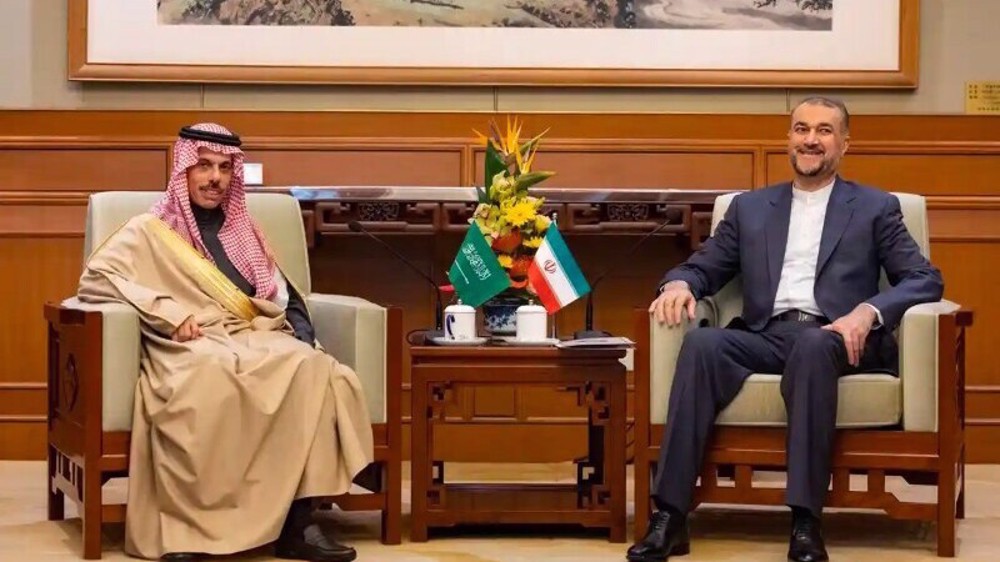

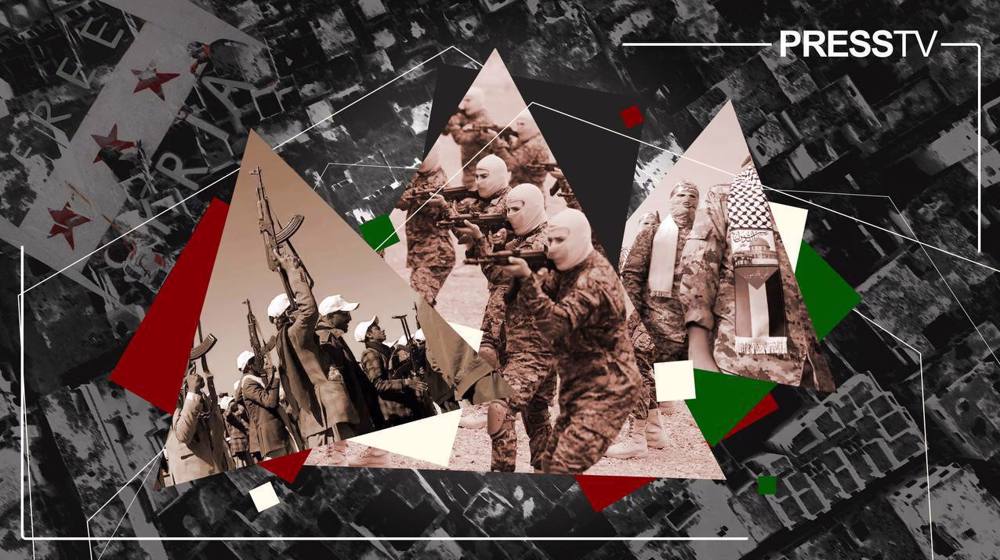
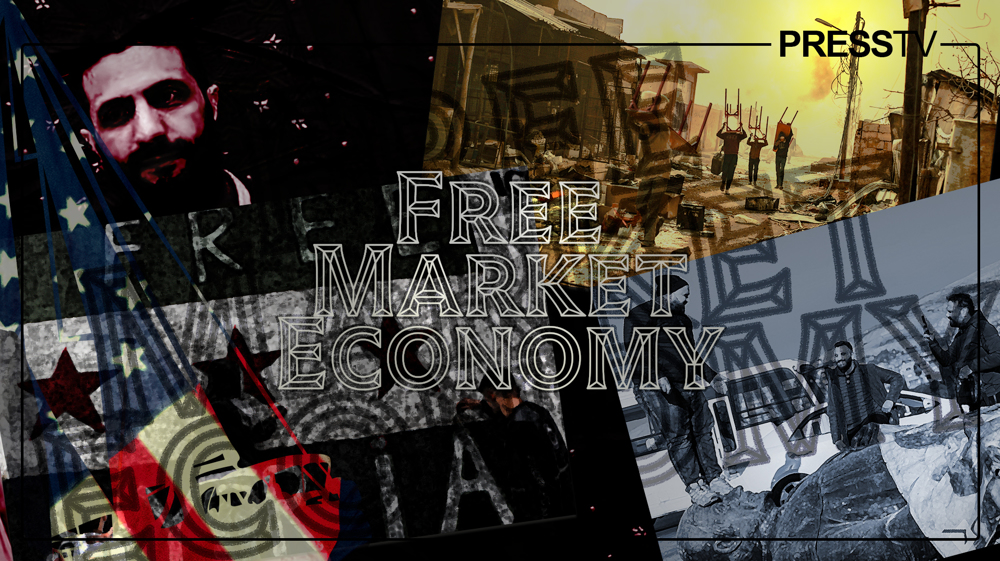



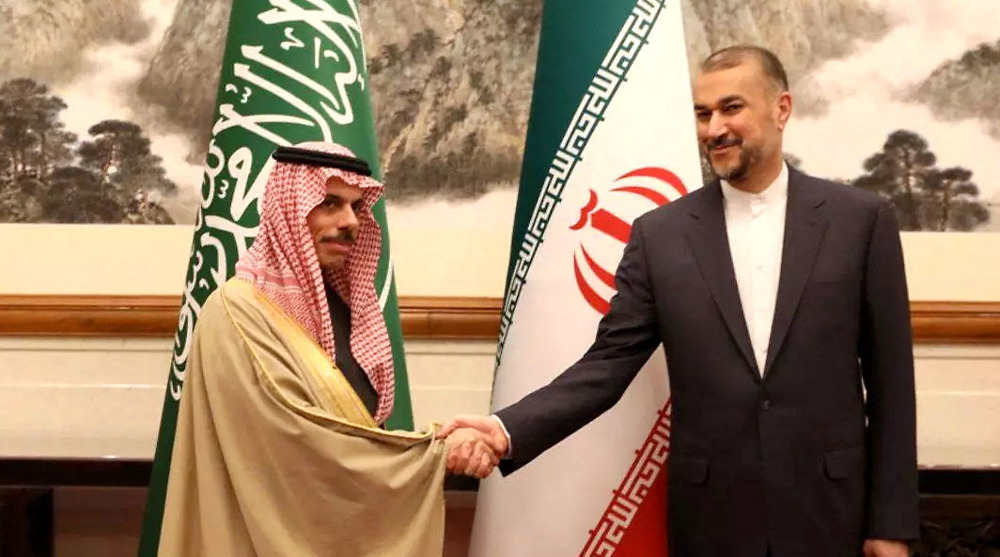
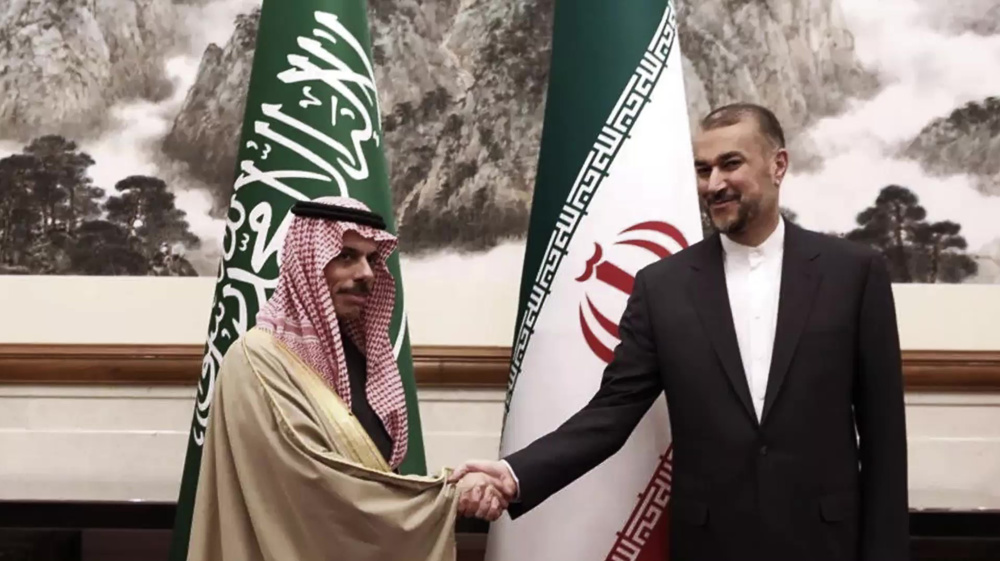
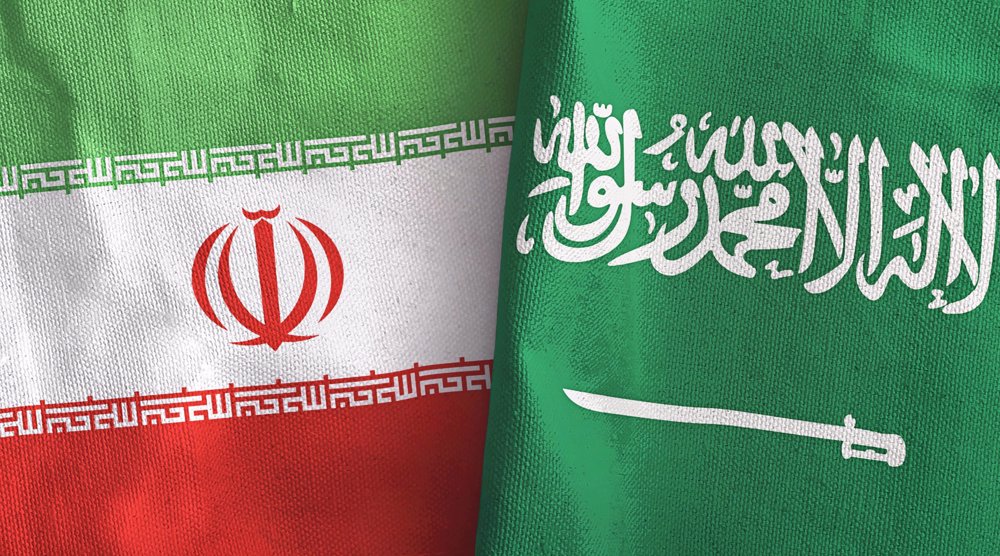
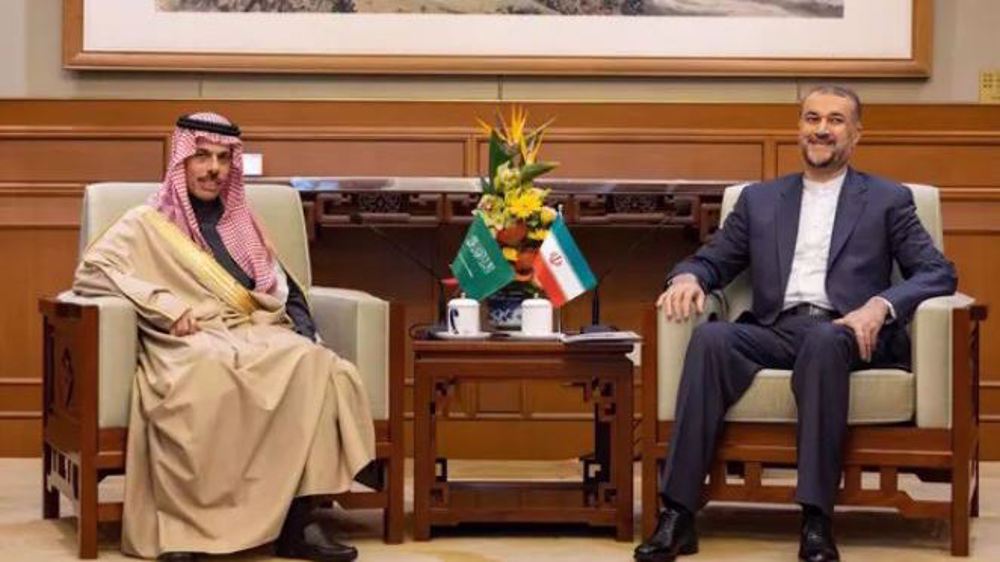
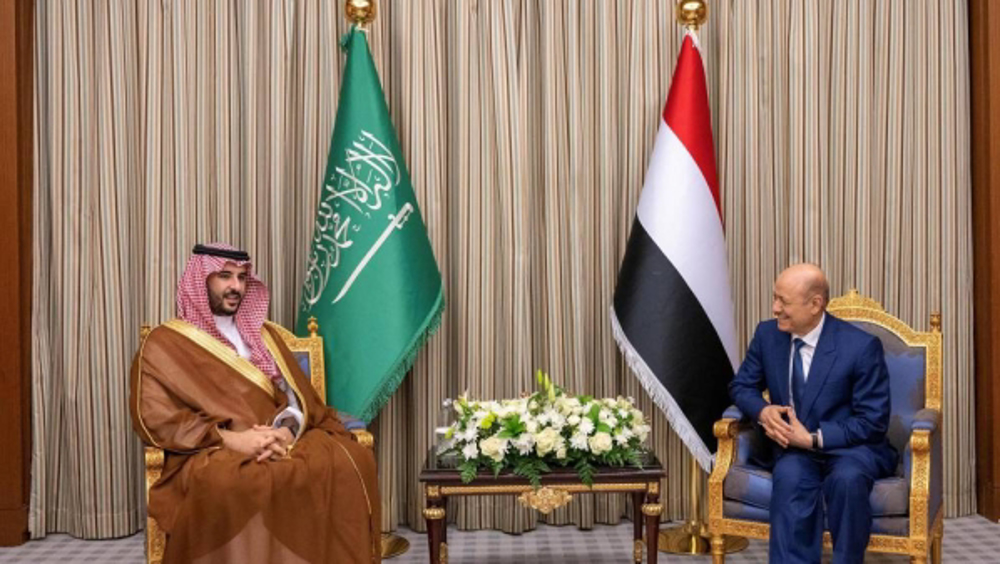

 This makes it easy to access the Press TV website
This makes it easy to access the Press TV website